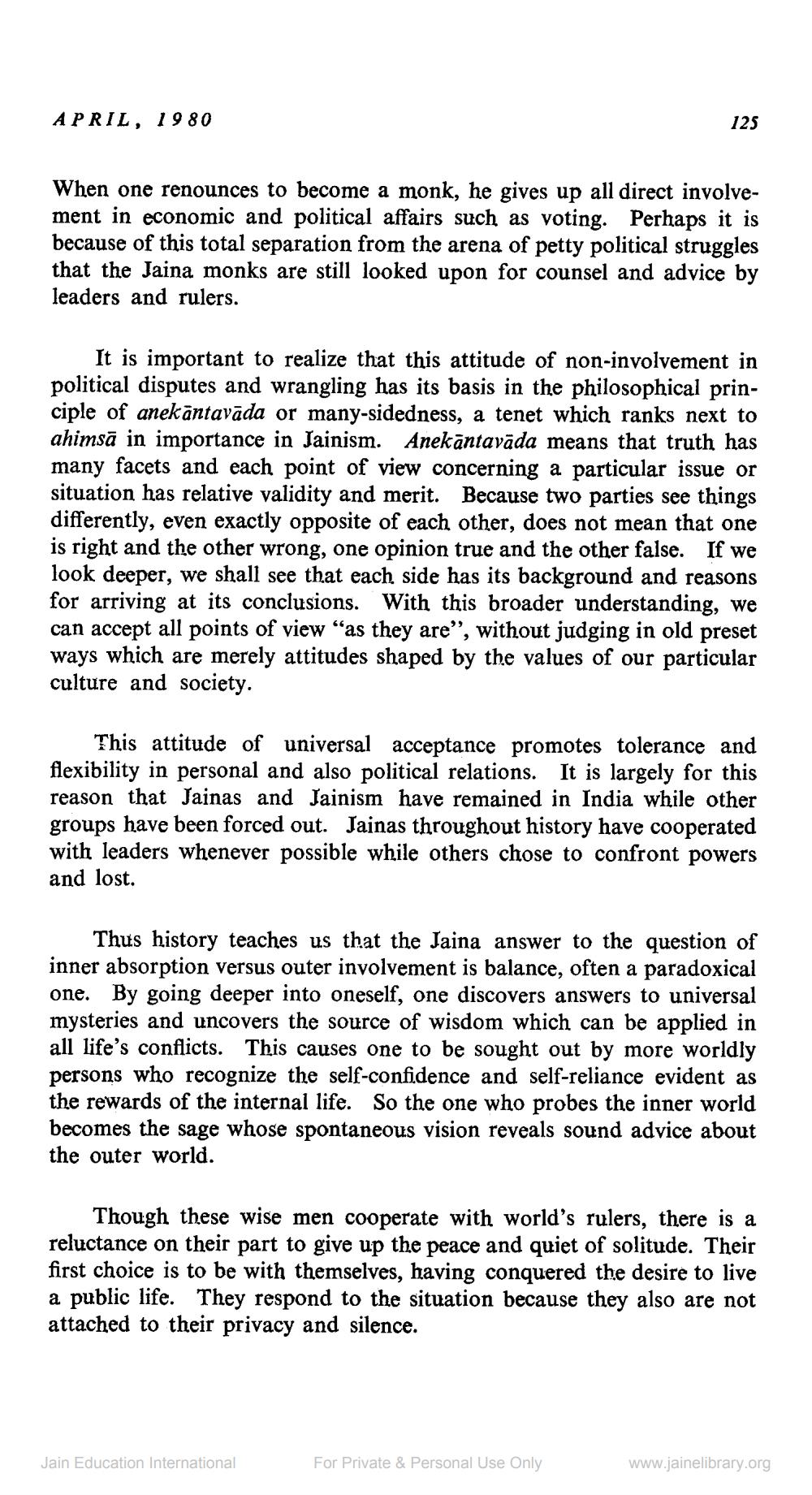________________
APRIL, 1980
125
When one renounces to become a monk, he gives up all direct involvement in economic and political affairs such as voting. Perhaps it is because of this total separation from the arena of petty political struggles that the Jaina monks are still looked upon for counsel and advice by leaders and rulers.
It is important to realize that this attitude of non-involvement in political disputes and wrangling has its basis in the philosophical principle of anekāntavāda or many-sidedness, a tenet which ranks next to ahimsā in importance in Jainism. Anekāntavāda means that truth has many facets and each point of view concerning a particular issue or situation has relative validity and merit. Because two parties see things differently, even exactly opposite of each other, does not mean that one is right and the other wrong, one opinion true and the other false. If we look deeper, we shall see that each side has its background and reasons for arriving at its conclusions. With this broader understanding, we can accept all points of view “as they are”, without judging in old preset ways which are merely attitudes shaped by the values of our particular culture and society.
This attitude of universal acceptance promotes tolerance and flexibility in personal and also political relations. It is largely for this reason that Jainas and Jainism have remained in India while other groups have been forced out. Jainas throughout history have cooperated with leaders whenever possible while others chose to confront powers and lost.
Thus history teaches us that the Jaina answer to the question of inner absorption versus outer involvement is balance, often a paradoxical one. By going deeper into oneself, one discovers answers to universal mysteries and uncovers the source of wisdom which can be applied in all life's conflicts. This causes one to be sought out by more worldly persons who recognize the self-confidence and self-reliance evident as the rewards of the internal life. So the one who probes the inner world becomes the sage whose spontaneous vision reveals sound advice about the outer world.
Though these wise men cooperate with world's rulers, there is a reluctance on their part to give up the peace and quiet of solitude. Their first choice is to be with themselves, having conquered the desire to live a public life. They respond to the situation because they also are not attached to their privacy and silence.
Jain Education International
For Private & Personal Use Only
www.jainelibrary.org




